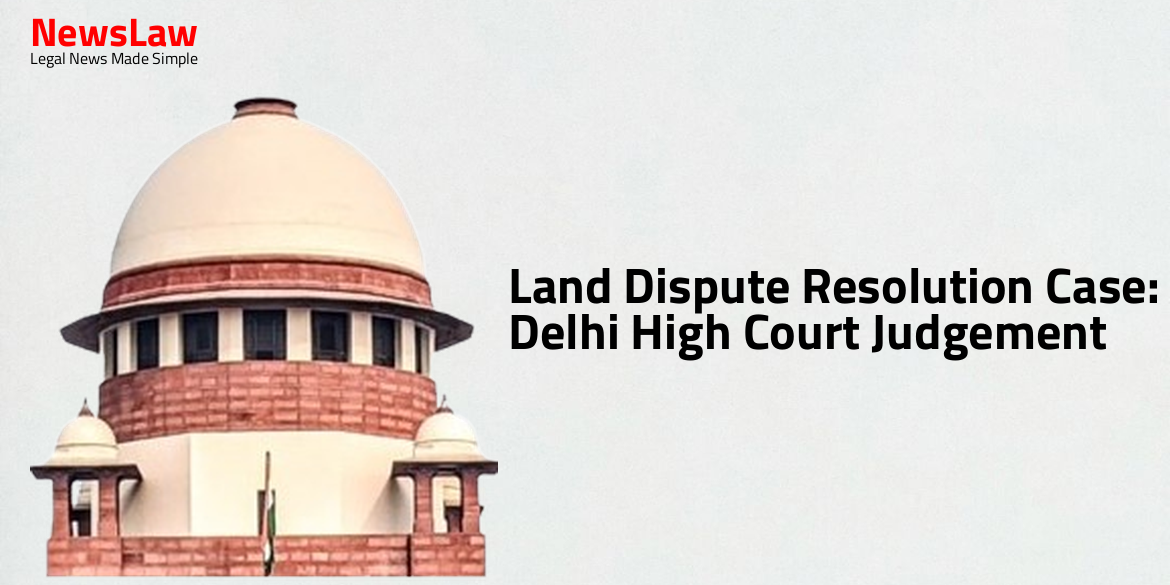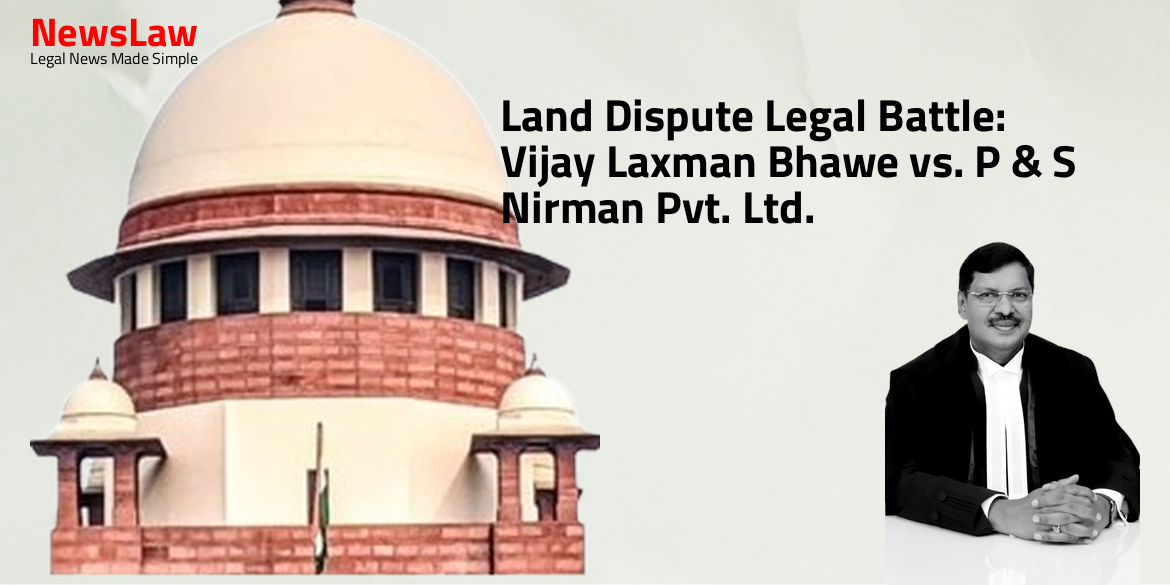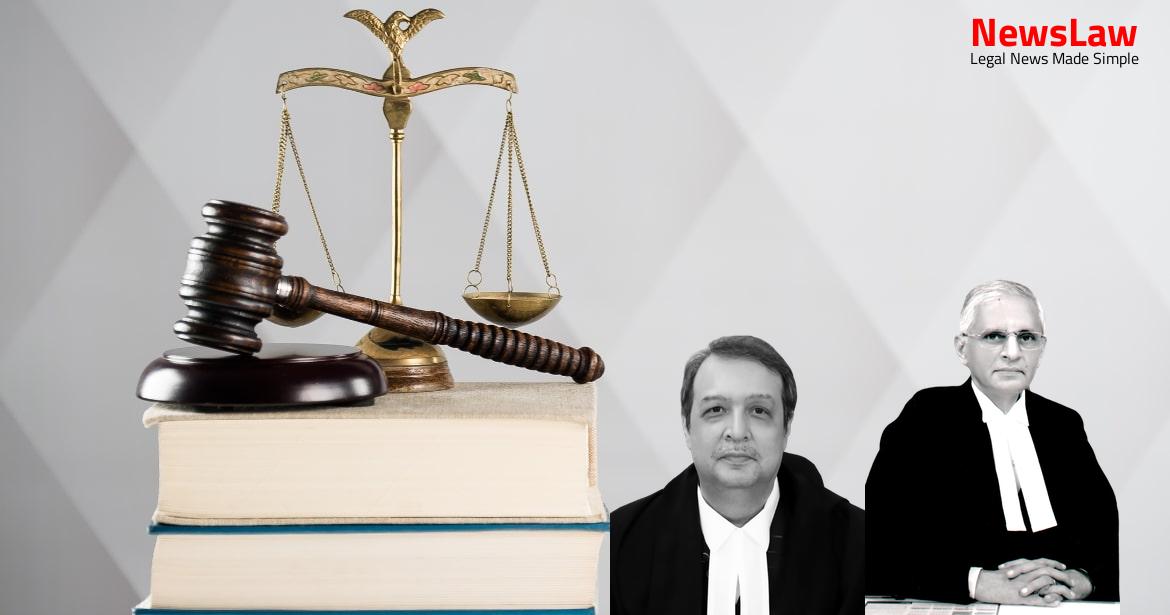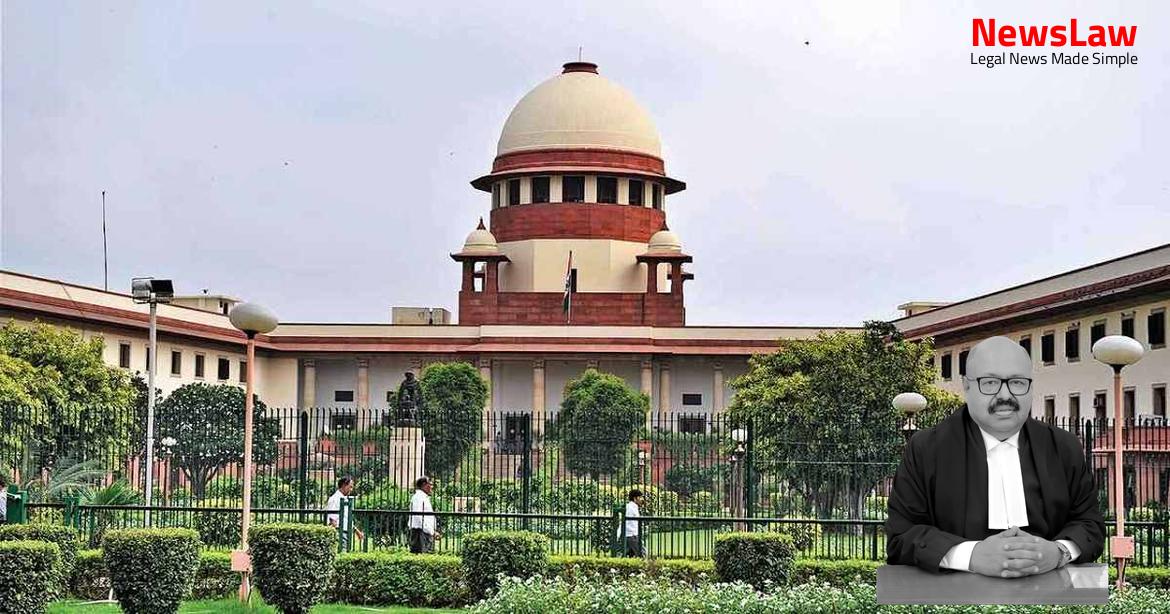In a recent landmark decision by the Delhi High Court, a significant resolution was reached in a complex land dispute case involving the petitioner society and the Estate Officer. The judgement sheds light on crucial legal aspects and offers insights into the intricacies of the judicial process. Stay tuned to learn more about the details and implications of this important ruling.
Facts
- The petitioner society was allotted land measuring approximately 1,864 Sq. Yards by an Indenture of Lease dated 07.01.1967
- The petitioner society submitted a representation to the Estate Officer on 05.07.2010 questioning the basis of levy upon them
- The Estate Officer passed a decision on 21.01.2010 for payment of damages by the petitioner society
- The petitioner society contends that the decision was passed ex parte without their knowledge or consideration of their filed reply
- Despite pursuing the matter and being led to believe that proceedings had been closed, the petitioner society received subsequent notices from DDA
- The petitioner society met with senior DDA officials on 06.12.2010 and submitted a detailed representation on 08.12.2010
- The Estate Officer passed a decision on 21.01.2010 for payment of damages by the petitioner society from 15.07.1987 onward
- The petitioner society contends that the decision was made without their knowledge and without considering their filed reply
- The petitioner society moved an application under the Right to Information Act to obtain various documents from DDA
Arguments
- The petitioner society argues that the eviction notice issued by the Estate Officer was ex parte, despite the society actively participating in the proceedings.
- DDA failed to assert a limitation defense in response to the District Court.
- Petitioner society contends that the demand notice for damages raised in 2008 is time-barred under the Limitation Act.
- Petitioner society claims occupation is not unauthorized per the Yamuna Monitoring Committee’s report and Court’s previous orders.
- DDA did not follow the proper procedure outlined in Rule 8 of the Public Premises Rules for assessing damages.
- DDA’s eviction notice was not stayed or set aside by any Court.
- The cancellation of the temporary license deed for land required for public purposes.
- Petitioner society challenges the delay condonation under the PP Act, emphasizing ‘sufficient cause’ requirement.
- DDA was instructed to clear Yamuna Floodplains in relation to restoration activities.
- The appeal should have been decided on its merits, with the District Court failing to evaluate legal considerations.
- Dispute over letters between DDA and PWD regarding compensation and land rights.
- The appellant concealed records related to payment of Rs. 7 lakhs to DDA.
- Arguments presented regarding interpretation of ‘sufficient cause’ for condonation of delay in filing appeals.
- The issue of condonation of delay in filing the appeal under Section 9 of the PP Act was discussed.
- It was admitted that a show cause notice under Section 7 of the PP Act was served on the petitioner society and duly replied to.
- The petitioner society filed a writ petition before the court, which was dismissed as withdrawn, giving liberty to approach the Appellate Court.
- The appeal under Section 9 of the PP Act was filed with the Principal District & Sessions Judge and subsequently dismissed.
- There was a delay of 2568 days in filing the appeal.
- A demand letter under Section 7(3) of the PP Act was issued and served on the petitioner society.
- The petitioner society chose to make representations instead of filing an appeal under Section 9 of the PP Act.
- The Department Officer Noting dated 10.12.2010 was mentioned as not conferring any right on the petitioner society.
Analysis
- The appellant’s explanation for the delay in filing the appeal calls for deeper scrutiny due to the inordinate delay of over seven years.
- The appellant’s claim of an assurance by the Collector (Nazu1) to stop recovery proceedings for review lacks substantial evidence.
- The appellant’s representation dated 08.12.2010 challenged the recovery amount, leading to discussion before the Collector (Nazu1) about halting recovery proceedings – ultimately resulting in continuation of recovery proceedings.
- The appellant failed to take legal action or file an appeal to protect their rights despite any subtle assurance to stop recovery proceedings.
- The plea regarding non-exercise of eviction under Section 4 of the PP Act and lack of declaration as an unauthorized occupant under Section 2(g) of the PP Act does not hold weight in the case.
- DDA’s rebuttal in an affidavit stated that a crucial letter dated 03.03.1988 is fabricated, contradicting their previous acknowledgment of leased land to the petitioner society in 2017.
- The land dispute history reveals the petitioner society had temporary use of a portion of land but failed to legally secure their rights.
- Multiple recommendations for the appellant’s case were considered but did not result in concrete allocation of rights or benefits.
- Despite recommendations from high-level committees, no official communication was received by the appellant, leading to continued disputes and representations to the DDA.
- Supreme Court held and quoted point 17 from the case of M/s Sethi Auto Service
- Point 17 emphasized the importance of adherence to contractual obligations
- Case law from M/s Sethi Auto Service supports the argument regarding contractual obligations
- Allowing such a plea would have disastrous consequences
- Not in public interest
Decision
- The petitioner was directed not to disturb the ecology while using and occupying the land in question
- No vested rights shall be claimed regarding the erected structure and the land
- Engaging in public beneficial activities does not create vested rights to continue using public premises
- Committee report determined petitioner’s occupation as grossly unauthorized
- Petitioner did not contest the factual conclusions of the Committee
- The land in question falls under the Zonal Development Plan for Zone ‘O’ approved by the Ministry of Urban Development
- Master Plan Delhi-2021 envisages rejuvenation of river Yamuna for larger public interest
- The petitioner society cannot claim vested rights in the land under dispute
- Application for condonation of delay was dismissed on grounds of laches
- Court is not obligated to discuss the merits of the claim once delay is dismissed
- Cause of action is barred by limitation and cannot be revived in writ proceeding
- No grounds for interference on the merits of the claim by the petitioner
- Writ petition is dismissed and parties are left to bear the costs
Case Title: PARAS RAM DANGAL SOCIETY Vs. ESTATE OFFICER -IV DDA AND ANR (2024:DHC:4298)
Case Number: W.P.(C)-1980/2023



